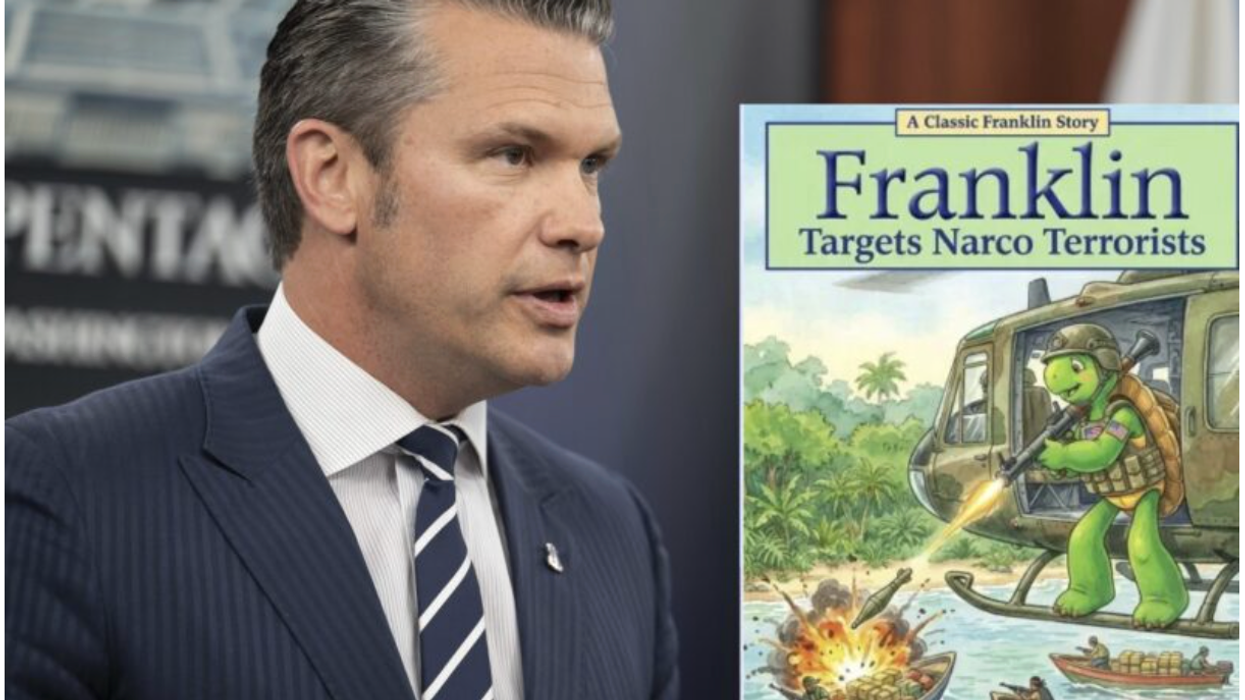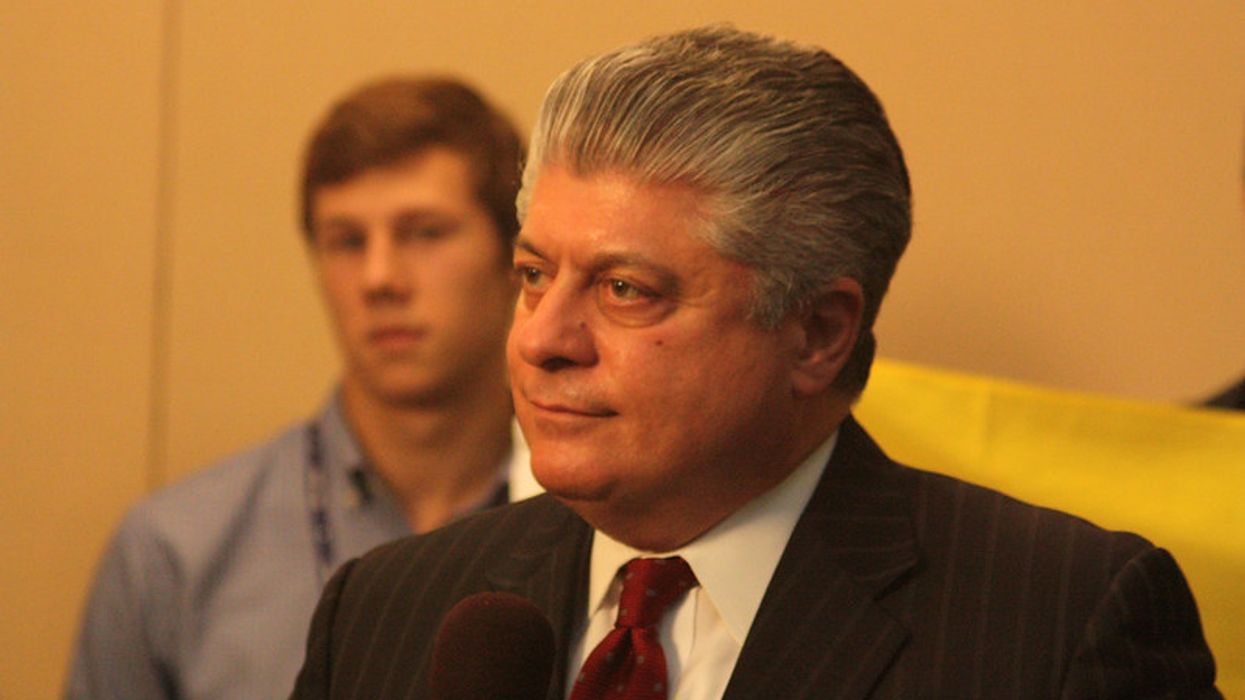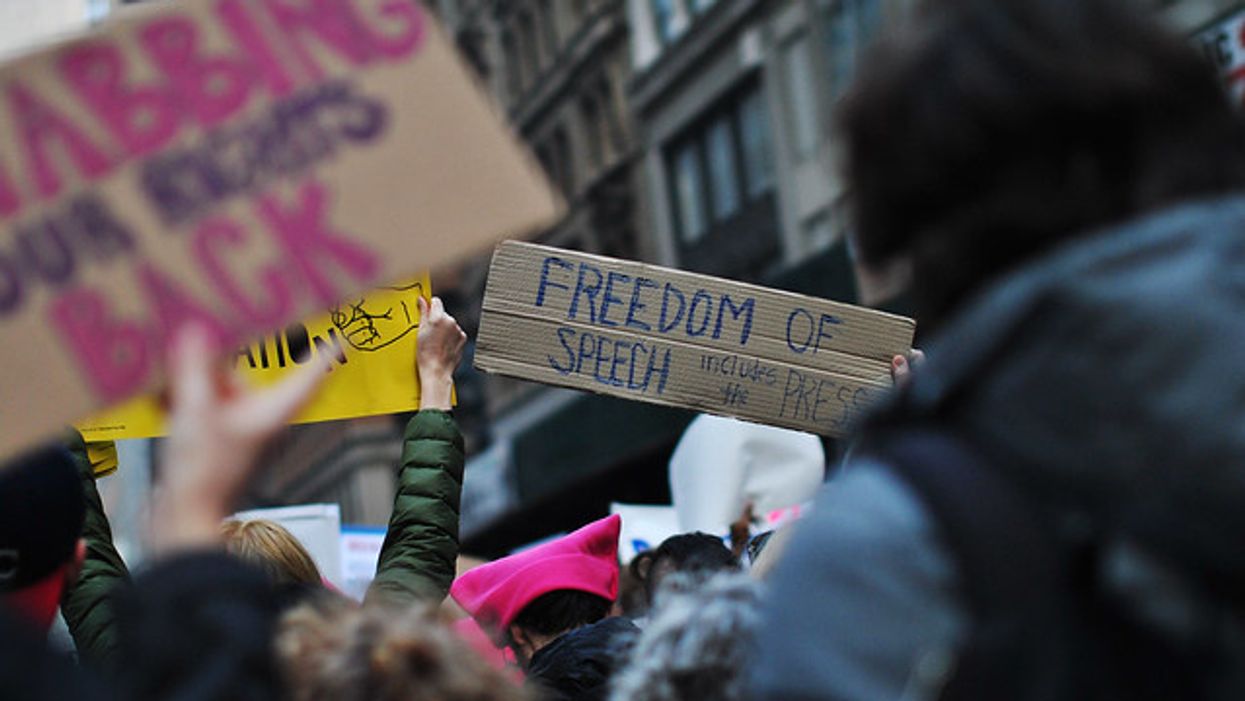Murder For Christmas? Hegseth And Trump Violate Decency, Morality And Law
When Secretary of Defense Pete Hegseth posted a meme of Franklin the Turtle, the amiable child's cartoon character, in a helicopter using a military weapon to kill people in a small boat below him, and captioned it "For your Christmas wish list," it understandably caused an uproar.
Should the secretary of defense be mocking the people his troops have killed? Should he engage a child's cartoon character to produce this mockery? Should anyone in his right mind, who professes to understand Christianity, suggest that this killing should be on a child's Christmas wish list? Should he be killing nonviolent boatpeople?
Here is the back story.
President Donald Trump has ordered the Department of Defense to annihilate persons in speedboats in the Caribbean Sea, 1,500 miles from the United States and elsewhere. The true targets of these killings are not the boats but the persons in the boats. We know this because the president has stated so, and because in a particularly gruesome event, two survivors of an initial attack on September 2, 2025, who were clinging to the broken remains of their boat hoping to be rescued, were hit with a second attack, which obliterated them.
Based on evidence he says he has and chooses not to share, Trump has designated these folks in the speedboats as "narco-terrorists" and argued that his designation offers him legal authority to kill them. But "narco-terrorist" is a political phrase, not a legal one. There is no such designation or defined term in American law. Labeling them confers no additional legal authority.
Lawyers in the Office of Legal Counsel of the Department of Justice who advise the attorney general on the meaning of the law have apparently authored a legal opinion informing her that she can tell the president what he wants to hear; that it is lawful to kill these boatpeople. This is the same office that told President George W. Bush that he could legally torture prisoners and President Barack Obama that he could legally kill unindicted Americans — including a child — overseas.
Neither the president nor the attorney general will produce this legal opinion for public scrutiny.
These killings constitute murder under federal law and under international law, and persons who use the force of government to commit murder may themselves be prosecuted for it in U.S. courts, courts of the countries from which their victims came, and in international courts. These killings constitute murder because none of the 81 dead boatpeople was engaged in any violence at the times of their deaths.
It doesn't matter, Trump has claimed, just look at the numbers of drug deaths in the U.S., they are "way down." Does the president believe that murder is justified by a diminution in drug deaths? Drug distribution is not a capital offence. If the police see a nonviolent person distributing dangerous drugs in an American city, can they summarily kill that person? Of course not.
Outside of a legally declared war in which U.S. military personnel are engaged in legally killing armed military personnel of the country with which the U.S. is at war, the Constitution requires due process — a fair jury trial with its attendant protections — whenever the government wants to take life, liberty or property from any person.
The controversy over Trump's killings was rubbed raw recently when six members of Congress — all military or intelligence community veterans — produced a video making accurate statements in which they advised members of the military that they are required to disobey illegal orders. The six declined to back down when the president accused them of sedition and treason and threatened them with death.
Sedition is the advocacy of violence intended to overthrow the federal government. Treason is waging war against the United States or providing aid and comfort to those doing so. Neither crime is even remotely implicated by the video. The video is protected speech which accurately reflects the law.Trump was unclear if by "death" he meant the DOJ would charge the six with a capital crime and seek the death penalty, or he'd just order the DOD to murder them.
Unfortunately, none of the six was willing to finish the debate they started and state just what illegal orders should be disobeyed. They know that an order to kill an unarmed civilian is an illegal order. It is an order to commit murder, and it ought to be disobeyed. A child can tell you this from her heart.
It gets worse.
The Washington Post reported that seven sources — seven — informed its reporters that when military personnel saw two boat survivors floating at sea, they asked the chain of command what to do. Under the law, the military had a duty to rescue the folks they tried and failed to murder.
These seven persons have corroborated that Hegseth verbally ordered that the two survivors be killed — an order he denies having given, but which the White House has confirmed, laughably calling it "self-defense." That's when Hegseth posted his macabre, revolting, anti-Christian suggestion of murder for Christmas.
What's going on here?
Both President Trump and Secretary Hegseth have taken an oath to preserve the Constitution of the United States. In their unbridled zeal to rid the country of illicit drugs — not a military responsibility — they have rejected the words and values of the Constitution and assumed to themselves powers that international law, federal laws, state laws and the natural law all expressly forbid — the knowing extrajudicial homicide of nonviolent persons.
But they are not the only culprits here. Where is the Congress to reign in a president who ignores well-settled constitutional norms and his quick-draw defense secretary who calls rules of engagement "stupid"? Where is the public outrage? Does the government not recognize any constitutional or legal limits on its powers?
Judge Andrew Napolitano formerly sat on the New Jersey Superior Court and was a longtime legal affairs commentator for Fox News. He has written several books and many articles for both scholarly and popular publications.
Reprinted with permission from Creators

















